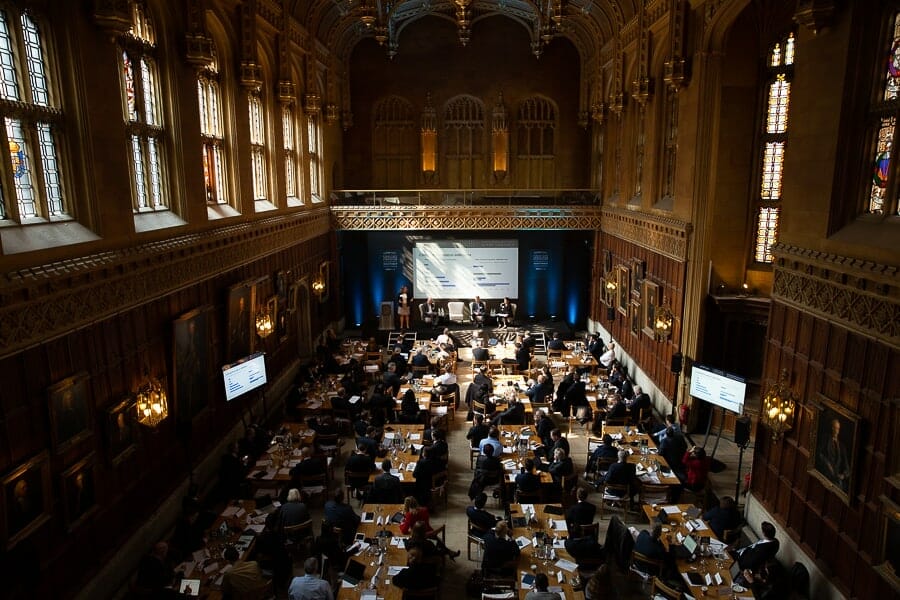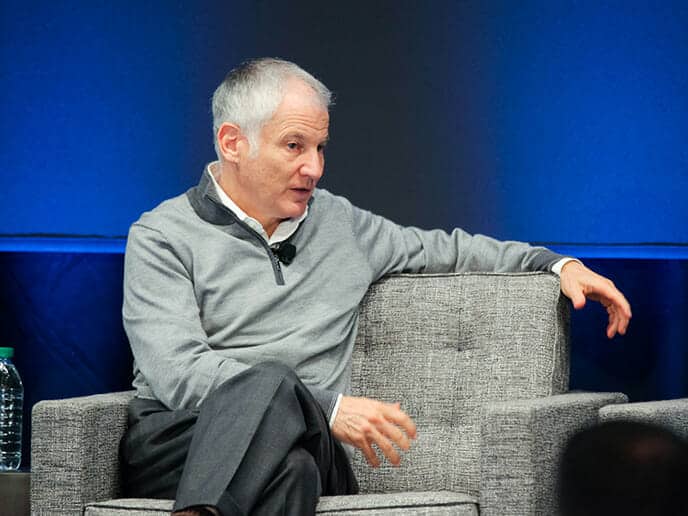The Fiduciary Investors Symposium at Cambridge University brought together more than 70 asset owners from 15 countries to discuss asset owners responsibility to engage with policymakers, barriers to long term investing and risks including ESG, climate and cyber security.
Brett Himbury, chief executive of IFM Investors revealed how an asset manager defines its behaviours and processes as responsible.
Himbury said a sustainable organisation is crystal clear on its purpose and its culture, processes and people align to that.
“Be authentic and don’t stand for anything that is inconsistent with that,” he said.
He said asset managers need to think about their investors and societies and how to rebuild public trust.
“The world needs growth and is limited in how to drive it, pension funds have a real challenge in seeking out returns, and the world mistrusts institutions,” he said. “If you put those three things together you get a situation where would like to invest in the real economy but the public is sceptical as to our real motives. There is a significant risk if we don’t do something about it.”
In an interactive panel on long term investing Philip Edwards, chief executive of new consulting firm, Ricardo Research laid out key areas for investors to consider in determining the obstacles to long term investing. In particular he focused on reducing exposure to explicit price chasing strategies such as momentum and trend following.
Both Jaap van Dam, principal director of investment strategy at PGGM and Sarah Williamson, chief executive of Focusing Capital on the Long Term gave delegates some practical tips for investors to move towards acting long term. These include reframing some ideas around risk and performance measurement, for example reporting long term returns, for example 10 years, first; and them five, three and one year returns.
Williamson discussed the challenges of investors which are managing risks across multiple time horizons, and suggested some tips for doing so.
To close the first day, an interactive session on implementing the sustainable development goals saw a large asset manager, two asset owners and an academic on a panel discussing the virtues and barriers to implementation.
Professor Mike Kenny, professor of public policy at the University of Cambridge talked about Brexit as a protracted political crisis in the UK, saying there will be some political instability for several years.
He said the resilience of the UK economy’s fundamentals would be an important consideration and the harder the Brexit the bigger the impact on GDP. Overall as a result of Brexit the EU will have lower GDP that the US.
Pilar Gomez-Bravo, director of fixed income for Europe at MFS Investment Management said the question around interest rates and inflation are the big questions when it comes to Brexit.
“An election is the big threat to markets. If Brexit goes as planned Carney will increase interest rates. And as soon as there is an election it will impact currency and gilt,” she said.
But there is nothing happening in Brexit that is significant in the context of Britain’s relationship with Europe according to Stephen Kotkin, Professor of History and International Affairs at Princeton University. Kotkin talked about turning points in the past including the late 1970s where Reagan, Thatcher and the free market revolution reigned, there was the political Islamism rising and it marked the beginning of the reform era in China. He said “we are currently experiencing a global turning point but we don’t know where because we’ve never been able to know it in real time”
He advised that investment strategy should be centred around serving the China middle class and the dislocation from within Asia.
An overwhelming number of delegates at the Fiduciary Investors Symposium said the funds management industry was not doing well in innovation
Martin Gilbert, who started Aberdeen Standard Investments in 1983 and is now chair, said industry participants needed to innovate and disrupt themselves.
Richard Williams, chief investment officer of Railpen said the fund was trying to change its culture to be more innovative.
“We think about innovation in two ways: tactical small changes; and larger strategic changes. We want the culture to change to an environment where it’s ok to be making more of those smaller changes,” he said.
Jean Michel, chief investment officer, Investment Management Corporation of Ontario an organisation that is only two years old, emphasised the importance of building strong internal teams to be able to partner with external managers that become an extension of the team.
Michelle Tuveson, executive director of the centre at the Judge Business School discussed the need to broaden the view and assessment of risk.
The Cambridge centre for risk studies has developed a metric for enterprise risk called five-year enterprise value at risk, which attempts to measure all the different scenario impacts on the value of a company.
Three risk professionals – Samir Ben-Tekaya, head of risk at BCI, Mads Gosvig, vice president, portfolio construction at ATP and Arjen Pasma, chief risk officer at PGGM – gave case studies on their approach to investment and organisational risk. They emphasised the importance of risk management in pension investment organisations and the balance required in taking enough risk in a diversified way.




